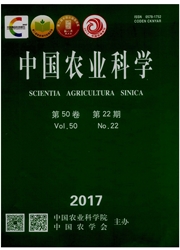

 中文摘要:
中文摘要:
【目的】对主要农业源温室气体减排技术与管理措施进行适用性评价。【方法】在汇整多学科文献和专家访谈的基础上得到农业源温室气体减排技术和管理措施“初始清单”;应用修正式德尔菲法筛选出农业减排技术和管理措施“最终清单”。【结果】研究筛选出确定性强、可行性强、减排潜力大、对产量有增产或稳产影响、农户易于采纳的3大类18项具有适用性的农业源温室气体减排技术与管理措施,其中:农田氧化亚氮减排适用性技术侧重养分管理和耕作制度;稻田甲烷减排适用性技术侧重水分管理和品种选择;畜牧业减排适用性技术侧重饲料管理和粪便管理。【结论】“最终清单”显示高产减排品种的选育推广应成为农业减排技术体系的重点;同时,配套补偿激励政策,加强对农户减排技术培训以提高农户的采纳意愿。
 英文摘要:
英文摘要:
【Objective】 Applicability assessment of mitigation technologies and management practices of emissions of greenhouse gases from agriculture. 【Method】 An initial long list of mitigation measures was obtained based on a literature review and expert interview, then the modified delphi method was used to explore expert opinions from interdisciplinary sphere, and a final short list of agricultural mitigation technologies was screened. 【Result】 A final short list of three topics and eighteen measures was drawn up in light of mechanism and measure certainty, technically feasibility, abatement potential, increase or stability in yield, practices easily adopted by farmers, among which cropland nitrous oxide mitigation applicable technologies had an emphasis on nutrient management and farming practices, rice paddy field methane mitigation aimed at water management and cultivar selection and livestock mitigation technologies and management practices focused on forage and manure management.【Conclusion】 Breeding high yield and reduction GHG cultivar should be a core work for agricultural mitigation technology system, meanwhile, supporting subsidy and incentive policies and reinforcing technical training /demonstration should be strengthened in order to inspire the farmers adoption willing.
 同期刊论文项目
同期刊论文项目
 同项目期刊论文
同项目期刊论文
 期刊信息
期刊信息
